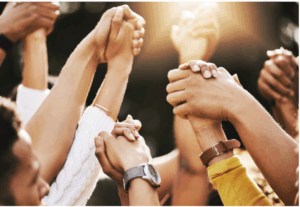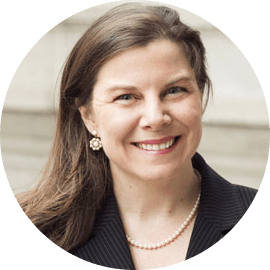Grief doesn’t come with a roadmap, especially when it’s compounded by unexpected financial confusion and emotional isolation. In this episode of Financially Ever After: Widowhood, Pam Baker shares her journey from shock and sorrow to strength and sisterhood after the sudden death of her husband, a financial planner.
Despite knowing his passing was coming, Pam was blindsided by the real-life complications that followed: locked accounts, incomplete estate plans, and the invisible weight of being “the one left behind.” She didn’t just survive, she built something beautiful from the rubble: Widows Who Wine, a national community where widows gather not just to grieve, but to grow.
When Even a Will Isn’t Enough
Pam’s story exposes a common but under-discussed truth: having a will doesn’t mean you’re prepared. As she recounts, “We had a will, but I still didn’t have access to everything.” Passwords, financial documents, and account authorizations were either incomplete or entirely missing. Even with a background in finance and a husband who was a planner, Pam found herself overwhelmed.
It’s a wake-up call for all couples, especially those who think they’re already prepared. Estate planning isn’t just paperwork; it’s about access, clarity, and ongoing communication.
Grieving on Your Own Terms
Pam quickly learned that most support groups, even those labeled “non-religious,” didn’t reflect her spiritual identity or emotional needs. “Everything was church-based,” she says. “That works for some, but it didn’t work for me.”
She started working with a grief-certified life coach and healing privately, until she noticed something: more and more women in her local Facebook mom group were posting about losing their spouses and asking for resources.
That’s when the idea for Widows Who Wine was born, not a place to “whine,” but a space for widows to reconnect over a glass of wine, share honest conversations, and find joy again.
Building Community After Chaos
Pam created the kind of support she wished she had – informal, welcoming, and rooted in shared experience. “It’s not about drinking,” she laughs. “It’s about not being alone.”
What started as a local gathering has blossomed into a national movement. The message? You don’t have to navigate widowhood alone. Whether you’re newly grieving or years out, there’s healing in humor, connection, and being seen.
The Financial Fallout No One Talks About
Beyond the emotions, Pam highlights the very real financial disruptions widows face, even when their partners handled finances responsibly. Credit cards shut down, bank accounts frozen, insurance lapses — it’s a cascade of complications that can leave widows feeling powerless at the worst possible moment.
Her advice? Go beyond the will. Create a full estate plan. Make sure both partners understand the family’s financial picture, and have access. Passwords, contacts, account numbers — they all matter.
Redefining “Moving On”
For Pam, moving on didn’t mean moving past her grief – it meant moving with it, into something new. Widows Who Wine became her way of saying: Joy is still possible. You can cry and laugh. You can miss someone and also look forward. You can grieve, grow, and gather, all at once.
Key Takeaways
-
A will isn’t enough: Make sure both partners have full access to all financial information, not just a signed document.
-
Widows need more than religion: Community support must reflect the diversity of grief experiences and belief systems.
-
Joy is a form of healing: Finding laughter and light moments doesn’t dishonor grief — it honors the resilience of love.
-
Estate plans must be accessible: Share logins, contacts, and instructions now — not when it’s too late.
-
You’re never alone: Grief isolates, but community brings you back to life.
If you’ve ever wondered whether your family is truly prepared for the unexpected — or if you’re searching for hope after loss — this episode is a must-listen.
Listen to “From Grief to Growth: How Pam Baker Built a Community of Healing” on Financially Ever After: Widowhood.
Listen to the full podcast here episode to learn more.

